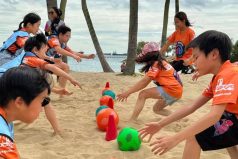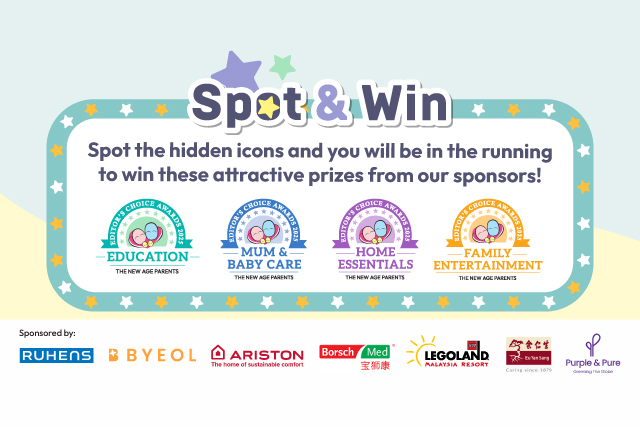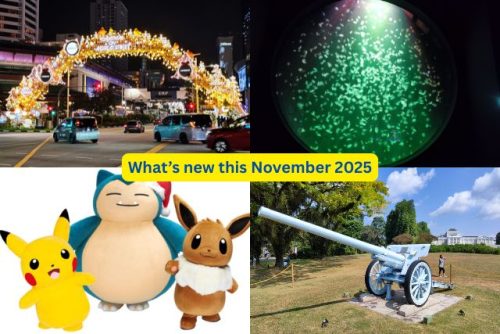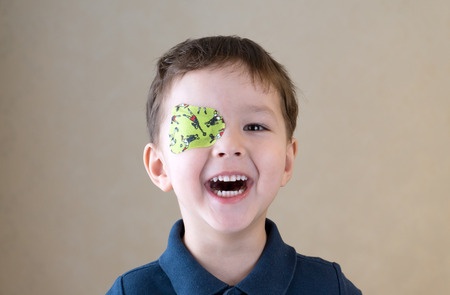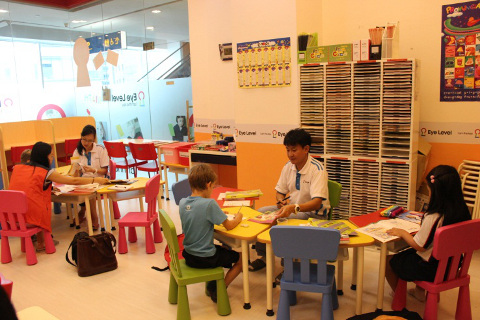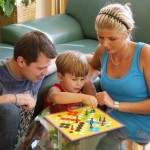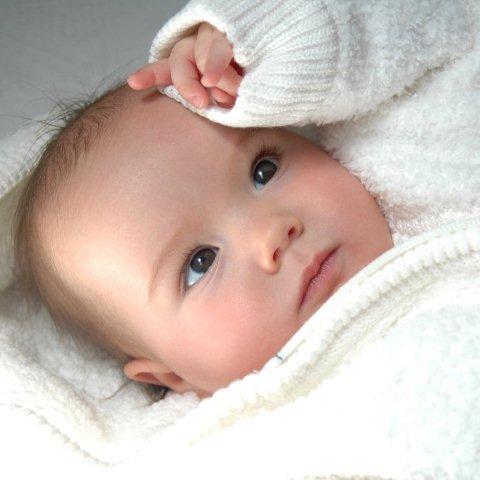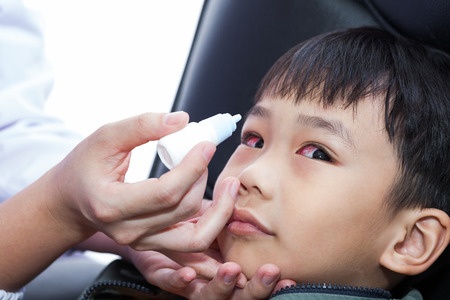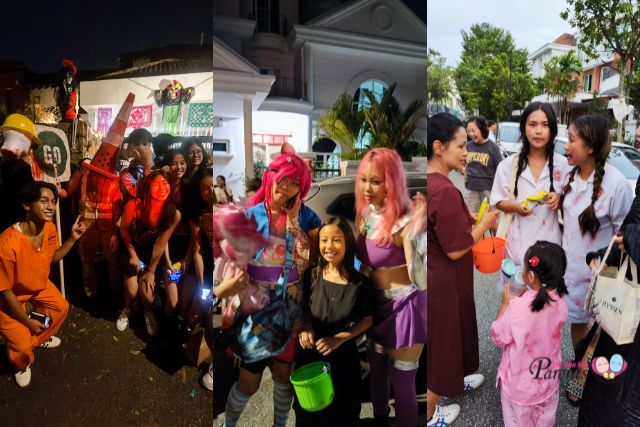Are contact lenses safe for children? Do children really need to wear contact lenses? We asked an eye expert to find out more.
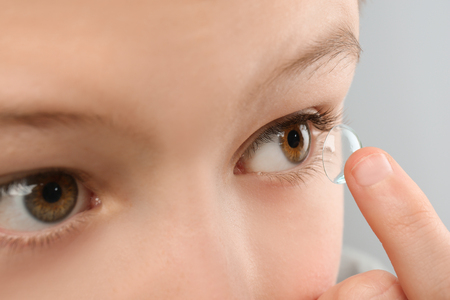
Children do not need to wear contact lenses, although it is alright for children to wear contact lenses if they are of appropriate age and maturity to keep good contact lens hygiene. So, if you are worried that your child may not be ready to handle proper contact lens care, it may be better to stick to spectacles.
Be it spectacles or contacts lenses, it is essential for children to wear fully-corrected prescription power for their refractive error because going around with blurry vision may lead to rapid worsening of their degree.
Some children require contact lenses because their eye condition warrants it. For example, children with keratoconus need to wear contact lenses to achieve sharp vision because wearing spectacles alone will not be able to provide good vision.
Other children require contact lenses during certain activities such as contact sports or any other activities that are high in intensity. In such cases, contact lenses provide sharp vision with freedom from spectacles which they need in order to perform at their peak potential.
What are the Pros and Cons of wearing contact lenses at a young age?
The advantages of wearing contact lenses at a young age are that your child will be able to enjoy freedom from spectacles earlier. This inadvertently leads to the self-perception of an improved appearance and better self-esteem especially in the teenage years when acceptance amongst peers is an issue.
It is also advantageous to start contact lenses at a younger age as it builds better self-discipline in contact lens hygiene earlier. Many a time, it can be challenging to find the appropriate fitting spectacle frames to match the growing child’s face especially in our Asian population with flat nasal bridges.
Wearing contact lenses at a young age minimises the problems of poor-fitting spectacles and solves the frequent need to change or fix broken spectacle frames.
The down-sides are that many children do not understand the risks of poor contact lens hygiene which could be as severe as getting sight-threatening corneal infections requiring corneal transplants.
Children tend to abuse contact lens wear by wearing for prolonged hours, wearing to sleep overnight or for naps, and wearing the same lens beyond the intended period of time in order to save cost.
Children are unaware that these poor habits may lead to irreversible problems of corneal hypoxia (oxygen starvation), corneal defects and abnormal blood vessel growth in the eye.
Hence, proper parental supervision is important. Careful cleaning of the contact lens is also essential to ensure children are less likely to suffer from bacterial infections or chronic allergy problems.
Can wearing contact lenses cause eye problems?
It is true that wearing contact lenses over a long time (many years) can result in cumulative effects such as dry eyes, contact lens allergies, upper eyelid droopiness due to excessive pulling, meibomian gland dysfunction, limbal stem cell deficiency etc.
However, it is not the age at which contact lens wear was started but rather the cumulative length of time that contact lenses were worn that leads to such eye damage.
If your child requires contact lens wear from young, just be mindful to limit the amount of time it is worn and remember to take frequent contact lens ‘holidays’ which means taking a break from contact lenses especially over weekends, in order to allow the eyes to rest, recuperate and breathe.
When is an appropriate age to start?
There is no absolute number to the appropriate age to start contact lens wear. The appropriate age is dependent on the parents’ assessment of their child’s maturity level, sense of discipline, responsibility and ability to care for their contact lenses.
What are the types of contact lenses to look out for?
The type of contact lens to use depends very much on the child’s eye condition, degree and preference. Hard lenses are more durable (they can last up to 2 years), more permeable to oxygen and offer sharper vision; however, they are less comfortable due to their rigid nature and less difficult to adapt to.
Soft lenses are known for their comfort and convenience as they are available very readily at any optical store in the form of dailies, biweekly or monthly lenses. Try to choose contact lenses with high oxygen permeability such as the silicone hydrogel lenses, which allow the cornea to breathe well providing better overall health to the eye.
Essential contact lens care tips that parents need to teach their children
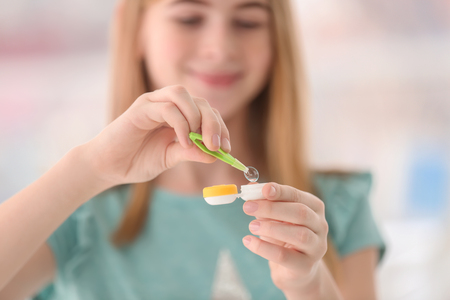
- Do not use tap water to clean contact lenses (even though it is safe for drinking)
- Do not bathe / sleep / nap / swim with contact lenses
- Do not wear contact lenses if you are sick
- Do not wear the contact lenses for more than 10-12 hours per day
- Do keep fingernails short to prevent scratching your cornea when inserting/removing lens
- Do RUB the lenses when cleaning them to loosen any dirt/dust attached to lens before storing them
- Do replace your contact lenses as recommended and do not wear them past their intended shelf-life
Contact lens safety precaution and care advise
Your eyes should always follow these 3 rules of thumb:
- Look good (no eye redness)
- Feel good (no pain/irritation/tearing)
- See well (vision is clear)
If you wear your lenses and any of these three criteria are not fulfilled, remove the lenses to rinse and check for any defects before putting them on again.
If the problem still persists, remove the lens and book an appointment with your eye doctor for a check to see if it is an eye problem or the lens problem. Make sure to bring the contact lens along to let them take a look too!
Will the lens get ‘stuck’ in the eye?
Contact lenses are supposed to have good movement in the eye to allow for the exchange of tears for lubrication and exchange of oxygen. They can get “stuck” when the eye is too dry or the contact lens is too tight-fitting.
Try putting a few drops of artificial tears and blink a few times before removing the lenses if it is due to dryness. Tight-fitting lenses should never be prescribed by your optometrist so be sure to get a proper contact lens fit and eye health check by your eye doctor at least once a year before buying contact lenses from the store.
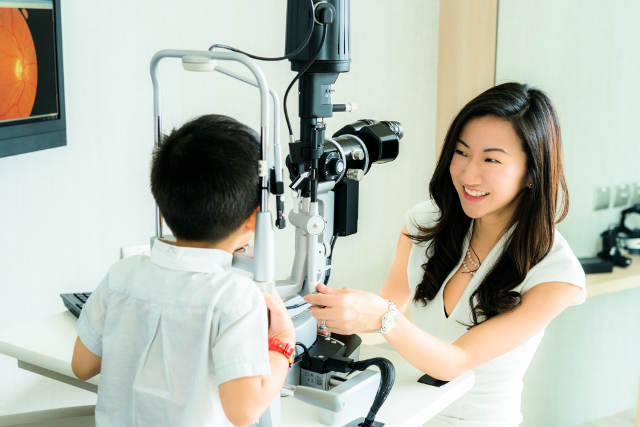
This article is contributed by Dr Claudine Pang (pictured above), an experienced and internationally trained opthamologist based in Singapore. With over 15 years of experience as an ophthalmologist, Dr. Pang has experience both locally and overseas in the subspecialty fields of both Medical Retina and Vitreoretinal Surgery.
* * * * *
Like what you see here? Get parenting tips and stories straight to your inbox! Join our mailing list here.
Want to be heard 👂 and seen 👀 by over 100,000 parents in Singapore? We can help! Leave your contact here and we’ll be in touch.












